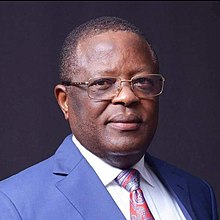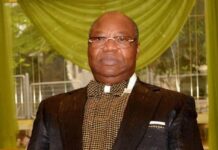Nigeria Governance Report III: Elections and the Management of Diversity, Abuja, 13th July 2012
 Every 2 year, the Economic Commission for Africa (ECA) works with a research centre in each African country to prepare a governance report and the 2012 report was done by the Centre for Democracy and Development (CDD). The public presentation of the Africa Governance Report III: Nigeria Country Report on Elections and Management of Diversity organized by CDD, in collaboration with the ECA and the UNDP was held at Denis Hotel Abuja on 13th July 2012. Participants at the workshop included members of civil society organizations including Women and Youth groups, the Media, academia, students of tertiary institutions, the United Nations Development Programme (UNDP) and the Economic Commission for Africa.
Every 2 year, the Economic Commission for Africa (ECA) works with a research centre in each African country to prepare a governance report and the 2012 report was done by the Centre for Democracy and Development (CDD). The public presentation of the Africa Governance Report III: Nigeria Country Report on Elections and Management of Diversity organized by CDD, in collaboration with the ECA and the UNDP was held at Denis Hotel Abuja on 13th July 2012. Participants at the workshop included members of civil society organizations including Women and Youth groups, the Media, academia, students of tertiary institutions, the United Nations Development Programme (UNDP) and the Economic Commission for Africa.
Observations:
The participants agreed with most of the study findings in terms of what has to be done in respect to the electoral system, the conduct of elections, political parties, the electoral agency (INEC), the structure of fiscal federalism, and voters’ education. The recommendations focused on the enforcement of extant laws while others are calling for urgent structural or procedural reforms. The findings emphasized the importance of developing a long term process which will
inculcate in Nigerian citizens the norms of good political conduct and the ethics of civility, all of which are critical and core requirements for the success of multi-party democracy. Other observations include,
· That one of Nigeria’s greatest challenges and political weakness is the concentration of power in one branch of government which has created the “disease” of executive supremacy. The consolidation of democracy would require challenging the doctrine of executive supremacy and developing the powers of the legislature and the judiciary.
· The other challenge to deepening democracy that must be addressed is the absence of ideological and issue based politics within the country’s political parties.
· The urgent need to nationalize citizenship such that people see themselves as Nigerians first rather than settlers from “foreign” ethnic or regional groups.
· That one key identity issue that needs to be addressed with vigour is gender equality in our society.
Resolutions on the Way Forward:
A number of recommendations that emanated from the study were adopted by the participants:
The Electoral System
· As the Justice Uwais Committee on Electoral Reforms and other notable commentators
have recommended, the Proportional Representation (PR) system should be combined with the present majoritarian FPTP system to allow for better representation of social diversity as well as ensuring that the majority truly has the mandate to govern.
· There is need to adopt technology-based voting system which will enable votes to be
transmitted directly to relevant INEC offices, while eliminating the possibility of multiple registration and multiple voting Political Parties
• Internal democracy must be practiced in the political parties. The Electoral Act of 2010 is clear about what this entails. These provisions must be adhered to strictly and infringements should be treated as punishable crimes.
• The phenomenon of godfatherism should be eliminated. Activities associated with it distort and undermine political parties and elections. These activities are criminal in nature and there are sufficient laws in the statute books to deal with them.
• Regulations on campaign finance for candidates and political parties must be strictly enforced. Relevant agencies should monitor and ensure that funding ceilings that are statutorily
established are not breached.
• The level of security screening for elective positions at all levels should be stepped up. A good number of elected officers have various degrees of unsavoury and criminal antecedents.
The Independent National Electoral Commission
• The autonomy of INEC should be enhanced and safeguarded. The Justice Uwais Committee on Electoral Reform clearly recognized the reality that the existence of free and fair elections
will depend on an autonomous and professional INEC.
• To achieve this, INEC should be unbundled.
There is the need to separate and handle independently, functions such as party formation, monitoring and enforcement of party codes; the delineation of constituencies; and the registration and conduct of elections proper.
The structure of federalism
· The definition of citizenship should emphasize the civic and national rather than the ethnicity and indigeneity issue.
· There is a need to restructure the federal system to reflect the requirements of a united national entity as well as reflect national diversity and local peculiarities.
Education and Voters’ Awareness
· Sensitization programmes on electoral process for both candidates and the general public
should be embarked upon or enhanced. In this regard, emphasis should be on the people at the grassroots.
· Political thugs need rehabilitation and training in societal values to change their behaviour. Mechanisms to sanction those who recruit thugs during elections must be devised.
Monitoring and Sanctioning of the Conduct of Public Officials
· Public office means service to the people. Government officials at all levels must be bound by ethical codes and values that reflect that public service is not an avenue for personal enrichment.
· Politicians have failed to develop a ‘good heart’ for the nation over the past sixty years and continue to activate political violence. It is imperative that politicians who organise and support violence be excluded from the political playing fields.
Dr Jibrin Ibrahim,
Director, Centre for Democracy and Developmen
Terfa Philip Hemen
Programme Officer(Information and Publications)



